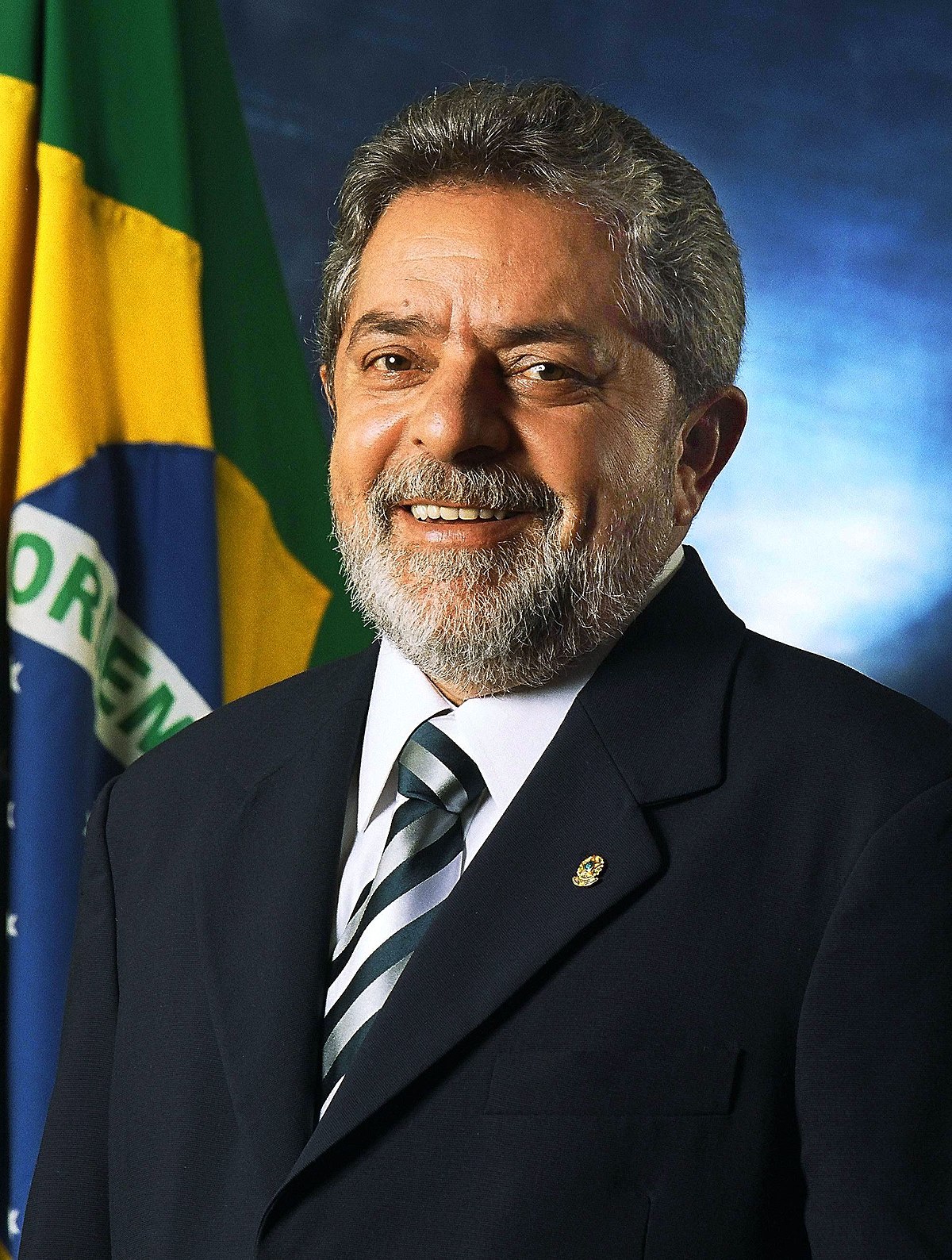
Lula Administration
BrazilBrazil's most severe problem today is arguably its highly unequal distribution of wealth and income, one of the most extreme in the world. By the 1990s, more than one out of four Brazilians continued to survive on less than one dollar a day. These socio-economic contradictions helped elect Luiz Inácio Lula da Silva of the Partido dos Trabalhadores (PT) in 2002. On 1 January 2003, Lula was sworn in as the first ever elected leftist President of Brazil.
In the few months before the election, investors were scared by Lula's campaign platform for social change, and his past identification with labor unions and leftist ideology. As his victory became more certain, the Real devalued and Brazil's investment risk rating plummeted (the causes of these events are disputed, since Cardoso left a very small foreign reserve). After taking office, however, Lula maintained Cardoso's economic policies, warning that social reforms would take years and that Brazil had no alternative but to extend fiscal austerity policies. The Real and the nation's risk rating soon recovered.
Lula, however, has given a substantial increase in the minimum wage (raising from R$200 to R$350 in four years). Lula also spearheaded legislation to drastically cut retirement benefits for public servants. His primary significant social initiative, on the other hand, was the Fome Zero (Zero Hunger) program, designed to give each Brazilian three meals a day.
In 2005 Lula's government suffered a serious blow with several accusations of corruption and misuse of authority against his cabinet, forcing some of its members to resign. Most political analysts at the time were certain that Lula's political career was doomed, but he managed to hold onto power, partly by highlighting the achievements of his term (e.g., reduction in poverty, unemployment and dependence on external resources, such as oil), and to distance himself from the scandal. Lula was re-elected President in the general elections of October 2006.
The income of the poorest increased by 14% in 2004, with Bolsa Familia accounting for an estimated two-thirds of this growth. In 2004, Lula launched the "popular pharmacies" programme, designed to make medicines considered essential accessible to the most disadvantaged. During Lula's first term in office, child malnutrition declined by 46 per cent. In May 2010, the UN World Food Programme (WFP) awarded Lula da Silva the title of "world champion in the fight against hunger".
